NORTH PLATTE – In light, cursive script, she strings newly learned verbs into sentences.
She sounds out each foreign syllable, practicing with the volunteer teacher.
“Yo escucho, tu escuchas,” Janet Evans recites. I listen. You listen.
“It would take me 100 years to say anything to anyone,” the retired North Platte doctor jokes.
Evans is one of 53 people signed up for this Spanish class organized by the nonprofit HOPE-Esperanza. The goal for this group of English-speaking 911 dispatchers, doctors, city and county employees, ranchers, police officers and business owners: communicate better as North Platte prepares for the opening of a massive new meatpacking plant.
“If you want to go to Spain or Mexico, this isn’t the class for you,” said TinaMaria Fernandez, founder of the nonprofit. “There’s a need in our community. How do we help communicate with each other to provide safety and welcoming?”
In the spring, the rancher-owned meatpacking plant Sustainable Beef will open in this west-central Nebraska city of 22,523. The plant is expected to add 2,500 people to town, as employees and their families move to fill the predicted 800 jobs, making it the city’s third-largest employer.
City leaders say it’s a boon for North Platte, a rare growth opportunity after decades of stagnation.
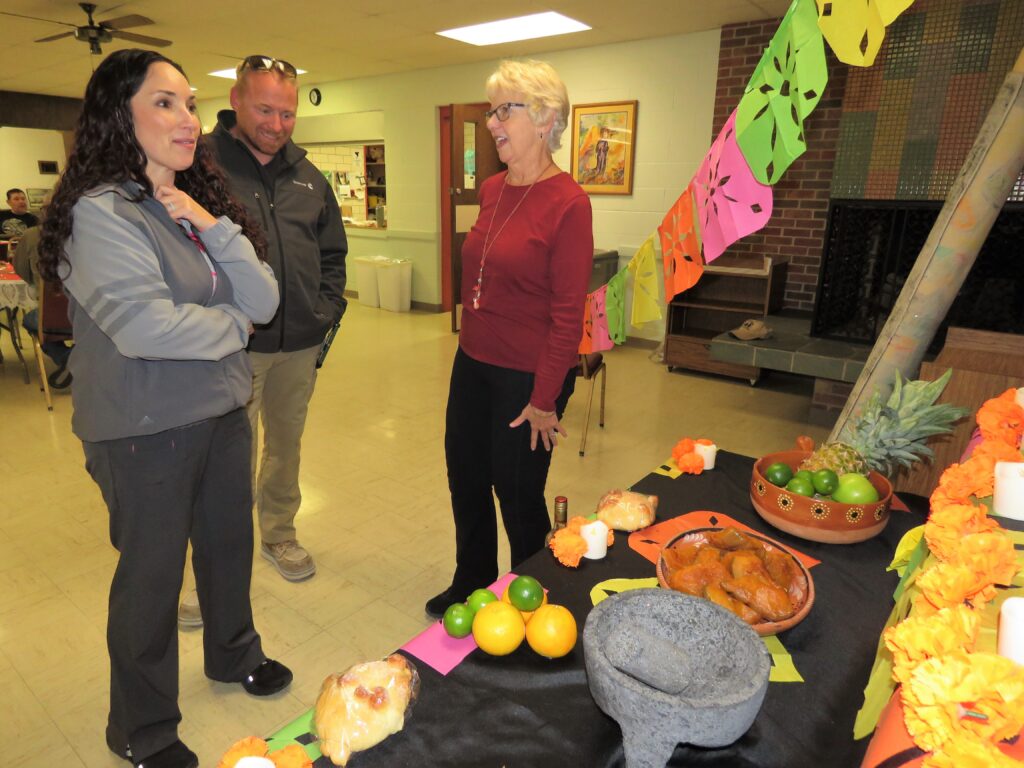
But in the years since the plant was announced in 2021, City Council meetings have also been peppered with complaints about the project – worry over the smell. Traffic on South Newberry Road. Harm to nearby wetlands.
And assumptions about the plant’s future employees, complaints about its yet-to-arrive people. Residents have pointed to Grand Island and Lexington, and the meatpacking plants that helped to demographically transform those towns, as cautionary tales.
They fear North Platte will change. They fear its future.
“These jobs that we’re getting are not for North Platte people,” resident Chuck McCarty said at a City Council meeting in August 2021.
“They are for the people that are coming across the border,” he said. “Obviously illegal.”
****
Echoes rattle through the gray concrete and metal insides of the Sustainable Beef plant, as construction workers hang the labyrinth of chains where strung-up cattle will soon be pulled through this 556,000-square-foot facility.
Soon, this assembly line will process 1,500 head of cattle, hauled in on 45 semi-trucks, each day. That’s an astonishingly ambitious number – fully 1.5% of the nation’s fat cattle, CEO David Briggs said.
“It’s right in the middle of cattle country,” Briggs said. “We’re right in the center of the country and I-80.” North Platte, he says, is “a natural fit.”
Since its announcement in 2021, Sustainable Beef has said it hopes to woo experienced meatpackers with better working conditions: a single, family-friendly daytime shift; decent wages; and a top-notch facility.
The idea is that meatpackers from places like Lexington, Grand Island and nearby states will leave their jobs for Sustainable Beef, growing North Platte’s population base and reversing a decades-long stall and slide.
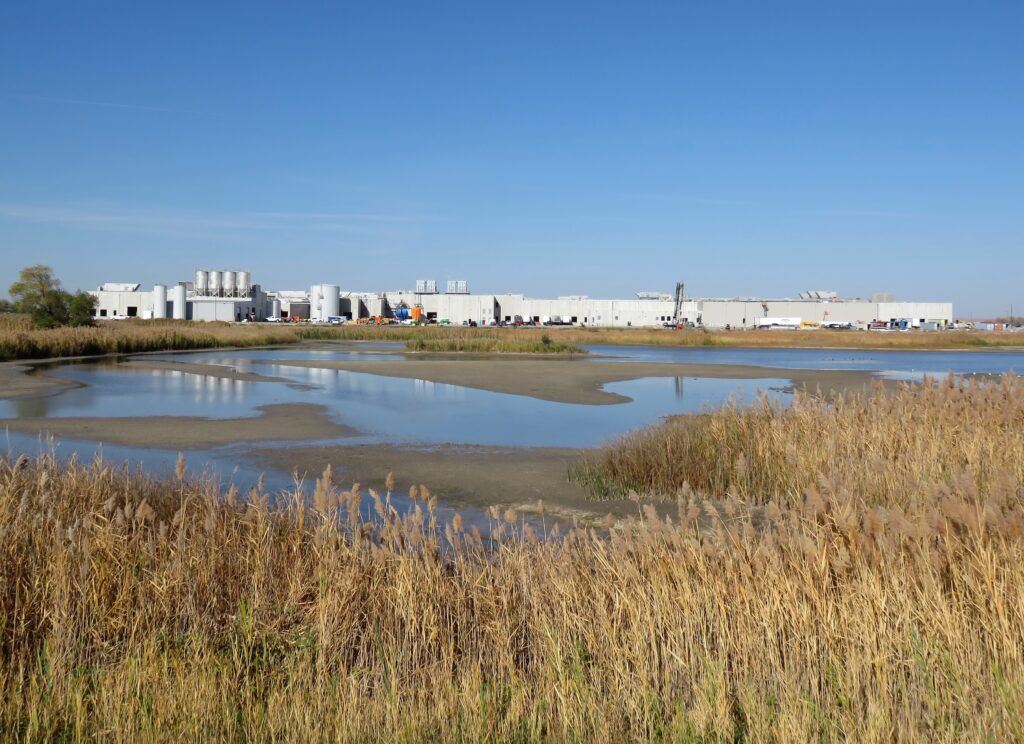
In 1980, North Platte stood at 24,509 residents. It had grown by 5,000 people during the 1970s, and proudly hailed itself as the largest Nebraska city outside the Omaha, Lincoln and Grand Island metros.
That same year, the trucking company Consolidated Freightways relocated employees to Las Vegas and Lincoln.
“I remember driving down one of the busier streets in North Platte. I’m not exaggerating – about every third house was for sale,” said Mayor Brandon Kelliher, a North Platte native. “I don’t know how many people moved out, but it was noticeable, even for a kid.”
The trucking company’s departure kicked off three decades of population inching up or down, never breaking past 25,000 people.
With Union Pacific as its largest employer, North Platte’s size stayed yoked to the success and struggles of the railroad, Kelliher said.
“People just say, ‘well, I can’t find a good job here, so I’m going to go somewhere else,’” Kelliher said. “And they leave. It’s that simple.”
Then, from 2010 to 2020, the city shrank by 1,343 people – a blaring alarm bell to leaders like City Council President Jim Nisley.
Sustainable Beef is expected to grow the population by roughly 10%, they say. It will fill empty seats in the school. It’s already helped bring hundreds of new apartments to the community.
It’s also bringing fear and anger, with much of it revolving around the meatpacking employees themselves, said the Rev. Steve Meysing, rector at North Platte’s Episcopal Church of Our Savior.
North Platte is the county seat of Lincoln County, which just voted 77% for Donald Trump after he promised an immigration crackdown and mass deportations. In public and private conversations, North Platte residents shared their fears: The new employees’ language. Their religion. Their immigration status. Their alleged criminality.
“It didn’t take long before all the dark concerns of long-term residents were being named,” Meysing said.
Letters to the editor poured into the North Platte Telegraph.
“The only ones profiting from this will be the investors and the illegals,” resident Dee Fugate wrote to the paper. She appeared at a planning commission meeting and termed the project “a nightmare.”
“Are they in cahoots with Joe Biden? Or just looking to turn this wonderful small town into Lexington II?” wrote Lora Bevington.
“Most of these people that work at these plants are immigrants,” resident Jim Jackson said in December 2021. “Quite a few of them are illegal immigrants. What’s it going to do to the crime rate in North Platte?”
Before a packed room in March 2021, resident Josh Empfield spoke one question into the microphone: “Where are we going to put the prison?”
Laughter rippled through the crowd.
In Nebraska, industries like meatpacking and manufacturing do rely on immigrants, so much so that more than 60 Nebraska organizations – including the Nebraska Chamber of Commerce and Industry, the Nebraska Cattlemen and the Nebraska Dairy Association – joined to publicly call for more generous federal immigration policies.
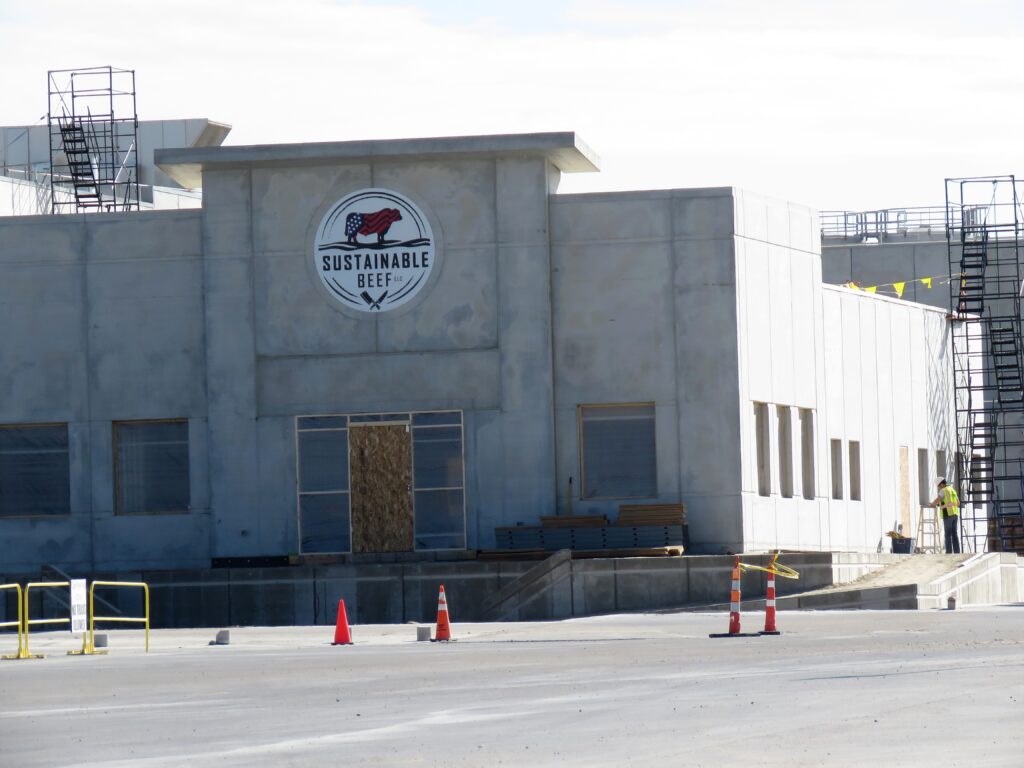
Plants like Sustainable Beef – and the lack of locals to staff them – have largely driven the diversification and population growth of rural Nebraska communities since the 1990s.
From 2010 to 2020, 16 different rural Nebraska counties grew, with 100% of that growth driven by Nebraskans of color, census data shows – largely first- and second-generation immigrants.
And like in other communities transformed by immigration, those potential changes have sparked anxiety.
“They definitely have the right to be concerned about their town changing, it’s their town,” Kelliher said. “What I feel like the government and city needs to do, is make sure that we’re communicating what is actually happening. Because if you’re living in a small town, boy, rumors are rampant.”
****
Drive an hour east of North Platte and you’ll hit Lexington – population 10,248 and home to a massive Tyson meatpacking plant.
Like much of rural Nebraska, the 1980s farm crisis hammered this town, when Sperry New Holland, a combine manufacturer, closed its Lexington plant and Dawson County saw an 11% population nose dive.
But in 1988, Iowa Beef Processors announced it would buy the old combine factory and turn it into a meatpacking plant.
At the time, IBP said its labor force would max at 1,300. Company managers told reporters they planned to “hire as many workers as possible from the immediate area.”
Instead, by the mid ’90s, the company employed 2,300 workers – most Latino immigrants, according to a 1997 University of Nebraska at Omaha case study on the city.
There are echoes of those workforce promises in North Platte. Sustainable Beef has said it expects to hire 800 workers, and that about 300 likely already live within 60 miles of North Platte.
“At this time, we do expect all our employees to come from within the United States,” CEO Briggs said in an interview, while declining to elaborate on recruitment tactics.
The opening of IBP prompted Lexington’s population to skyrocket from 6,601 in 1990 to past 10,000 a decade later. And all of Lexington’s growth was Latino, with that population jumping by 4,972 residents in 10 years.
In North Platte, the dynamics of a population increase should look and feel different because of its size, said Kelliher, the mayor. North Platte already has 22,523 residents and expects about a 10% population bump, nothing close to Lexington’s near doubling.
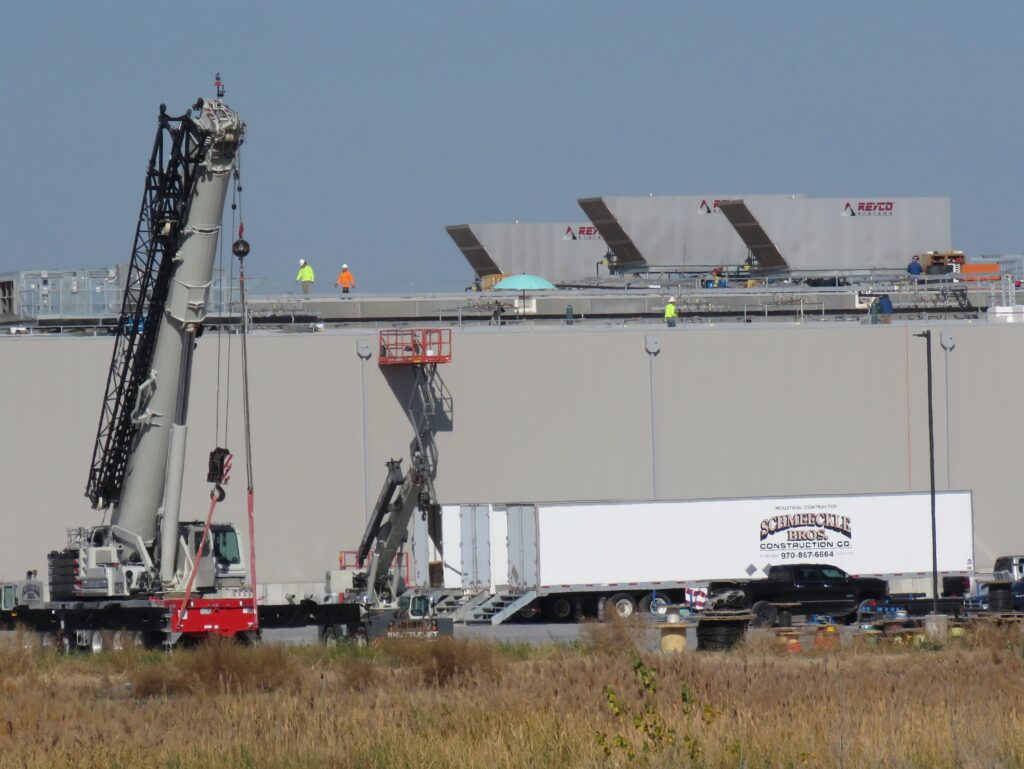
Still, the mayor knows there will be turbulence ahead.
“One of the biggest messages that the folks from Lexington presented to us is no matter how well you prepare, there’s going to be things that happen that you didn’t even know were going to be an issue,” Kelliher said.
Housing consultants in Lexington originally thought the city needed 334 new units. It wasn’t nearly enough – more than half the families surveyed in the UNO case study reported they had difficulty finding homes.
By 1992, consultants realized Lexington actually needed twice as much new housing as had been recommended.
But in North Platte, there’s already much more building happening, with 2,000 new housing units, a mix of houses and apartments, in various stages of development.
“That is very, very significant for a community that’s only built between 20 and 30 new housing units a year for the last few decades,” said Gary Person, president and CEO of North Platte Area Chamber & Development Corporation.
Crime is also on some North Platte residents’ minds. People point to meatpacking communities like Grand Island and Lexington as examples of what they fear.
But that fear obscures the fact that, today, North Platte’s crime rate is higher than Lexington’s. North Platte crime is in fact higher than every other similar sized city with a meatpacking plant in Nebraska, former police chief Dan Hudson told the North Platte Telegraph.
“For us to automatically assume that if this group of people or that group of people come into our community, that it’s going to be a problem, I think that’s a far reach,” Hudson said in a work session focused on Sustainable Beef.
North Platte is already more diverse than Lexington was before IBP came to town. Then, Lexington’s Latino population was barely 5%. Latinos already make up about 10% of North Platte.
And North Platte Public Schools is already equipped to handle more than 20 languages, Superintendent Todd Rhodes said. The district has three teachers and three paraprofessionals dedicated to students learning English, he said, though those students make up only 2% of the total student body of 3,872 kids.
In Lexington, public school enrollment has doubled in the past 30 years, and about 40% of current students are learning English.
At a July 2021 meeting of North Platte’s Economic Development Fund Committee, resident Fugate voiced her concern over schools: “What are you going to do when you get a 14-year-old boy in a class with a bunch of third graders and he can’t speak English?”
That will never happen, Rhodes said.
“Our high school kids are high school kids,” he said. “We don’t have a fifth grader in a first grade classroom because they don’t speak our language.”
When Sustainable Beef was first announced, Evans, a family doctor in North Platte for 34 years, had a knee jerk impulse – fear, she said, that North Platte would become “just like Lexington.”
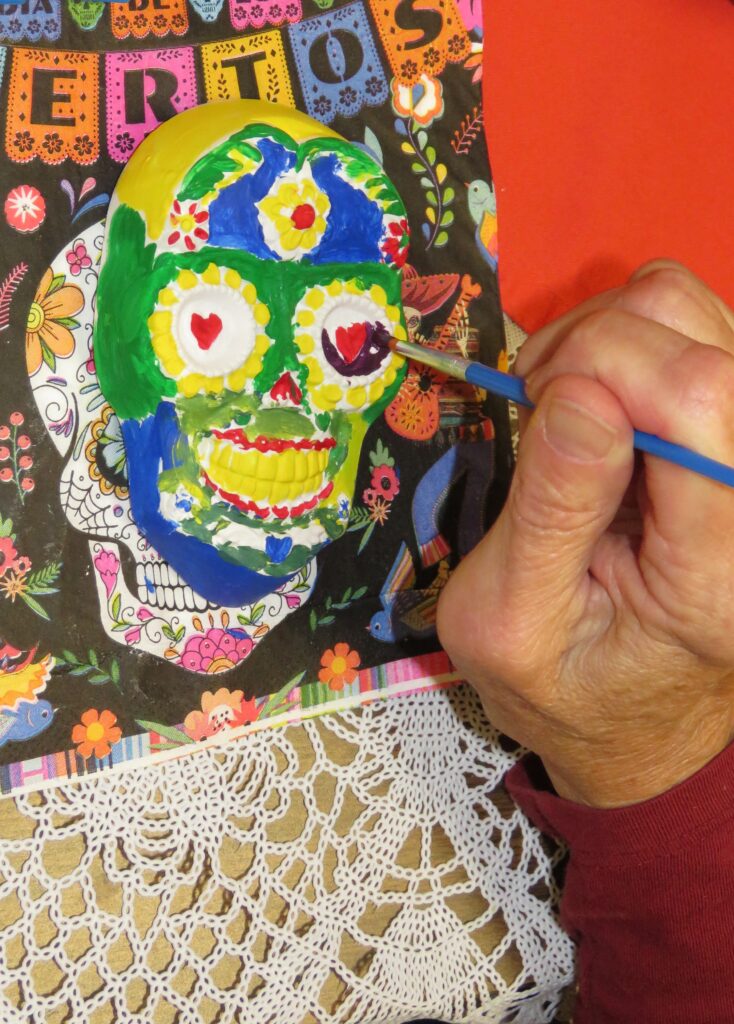
Meysing, who leads the Episcopal Church of Our Savior congregation, decided to address that fear by bringing Lexington and North Platte residents together, planning a panel of residents from both cities to talk about the future at a time when North Platte was focused on Lexington’s past.
“There are people feeling a lot of darkness, because they’re scared. They’re uncertain about what the future of the community is going to be … a lot of it was catastrophizing too,” Meysing said. “What I said was, let’s learn from those who have been down the road before us.”
The church gathered former teachers, nonprofit leaders and translators. They discussed Lexington’s rocky start with the IBP plant; how the young unmarried men who came to work were eventually replaced with new families and school-aged children; how local churches helped newcomers navigate doctors appointments, school registration and the immigration system.
These discussions changed Evans’ mind, calmed her fear.
“They had ironed out those difficulties, figured out how to live at peace with each other and realized their communities were stronger, more robust and better,” the retired doctor said. “We paid attention to Lexington at the beginning … but we never thought to go back and ask how they were doing.”
****
HOPE-Esperanza started out of the back of Fernandez’s SUV in 2021. The nonprofit’s founder would drive to church parking lots and parks handing out boxes of food to those in need. Sustainable Beef hadn’t been announced yet.
“If a kid needs a coat, let’s get them a coat. If somebody needs translation, let’s help them make that appointment,” Fernandez said. “And then it became glaringly obvious that this was a much bigger matter.”
Fernandez said that HOPE-Esperanza has helped thousands of people each year in North Platte and surrounding areas. It stocks walk-up food pantries and hands out nearly 50 food boxes each week. It gives donated furniture to newcomers who need a couch or kitchen table. It gets residents clothes, books, shampoo, soap.
A welcoming coordinator helps parents sign up their kids for school and sometimes helps the parents find jobs. The city reaches out to the nonprofit if they need a translator.

Early on, Fernandez said new families would find their way to HOPE-Esperanza maybe a month after arriving in North Platte, often referred by the school or city employees.
“Now, we’ll get calls from people wanting to set up an appointment before they even arrive in North Platte,” mostly through word of mouth and family, Fernandez said.
HOPE-Esperanza is helping the community prepare for an influx of people, many of whom are expected to be native Spanish speakers.
At Fernandez’s recommendation, law enforcement, schools and local businesses now have handheld translators.
With Episcopal Church of Our Savior, the nonprofit hopes to start a neighbor-to-neighbor program, where longtime residents of North Platte are paired with new families to share each other’s cultures, Meysing said.
Sustainable Beef actually plans to use HOPE-Esperanza’s space for job interviews, since the plant offices aren’t finished yet.
And potential employees are already arriving.
“We call them ‘the watchers,’” Fernandez said – mostly Cubans from Florida looking for temporary work as they wait for Sustainable Beef to be up and running.
“As soon as those walls are up and they’re hiring, they’re going to do the whistle and say, come,” Fernandez said.
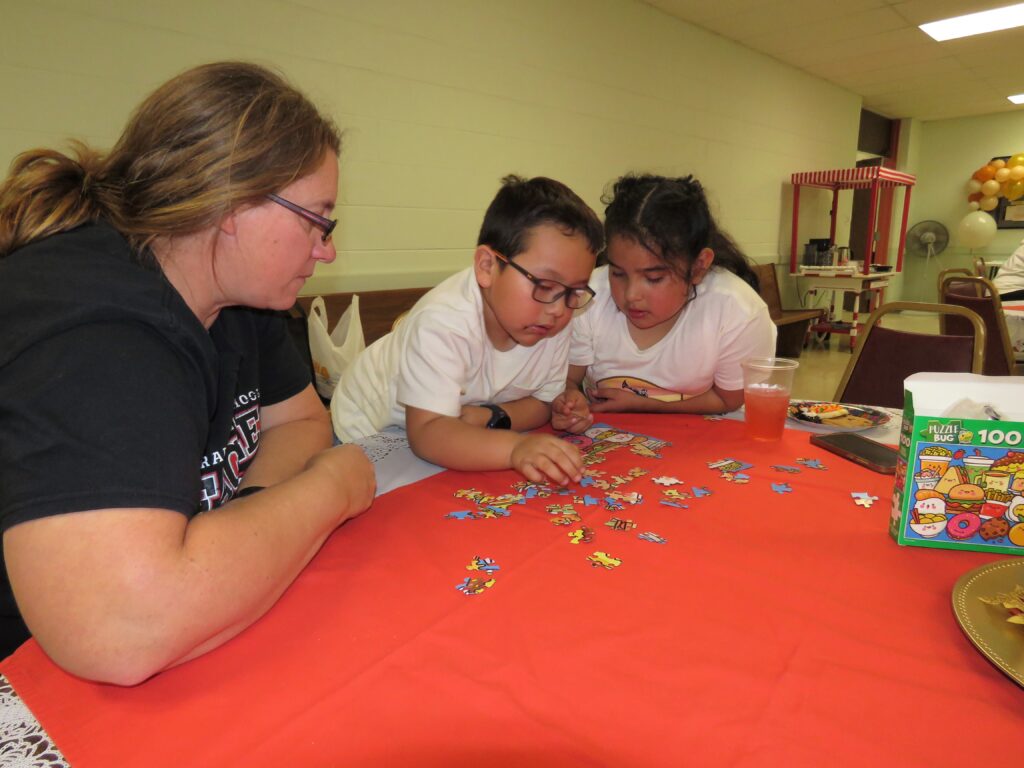
The day after Spanish class in North Platte, two groups of people came together to celebrate Dia De Los Muertos – the longtime residents taking HOPE-Esperanza’s Spanish classes, and the newer residents learning English.
At each table, they painted detailed sugar skulls. An “ofrenda” honoring family members who have passed took up a corner of the church meeting room. Evans placed a photo of her parents there, to remember them.
“I don’t think any of us feel like we’re going to be fluent in Spanish,” Evans said. “What we’re hoping to see is both sets of speakers get more comfortable with each other, feel OK making a mistake, laugh about it, move on and get to know each other.”
HOPE-Esperanza has another session of language classes planned for next year, Fernandez said.
Already, January’s Spanish classes are nearly booked solid.
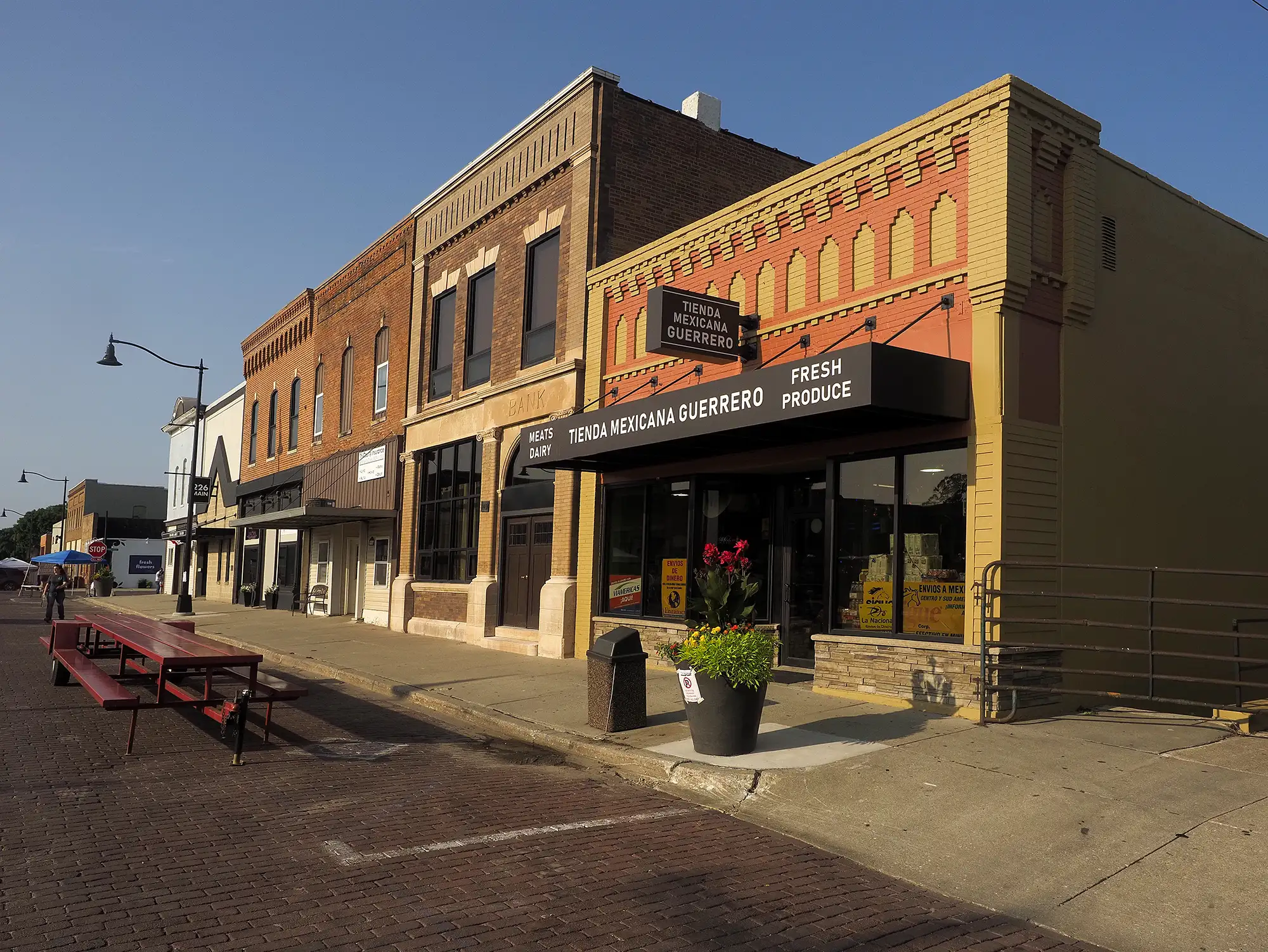
It’s practically gospel in Nebraska that our smaller communities are declining, continuing a population slide that began long ago and will continue forevermore. But many Nebraskans don’t realize that conventional wisdom is being upended, altered by a force powerful enough to turn the tide on decades of decline and offer some communities the chance to chart a new path forward. In a word: Immigration.
-
Nebraska Evolving: The perception is that smaller communities are dying. The reality: Many are growing, for one reason. Immigration.
Twenty one Nebraska counties outside the Omaha and Lincoln metros are growing, growth sparked by immigrants and their extended families. Experts say immigration is key to the survival of small towns like Wakefield, even though it can also cause housing shortages, strain schools and create chasms between the old residents and new. Read this story »
-
Nebraska Evolving: Immigration is changing, and maybe saving, some small Nebraska communities
A new FFP series, “Nebraska Evolving” will dig deep into several smaller Nebraska cities and small towns – places like Wakefield, the star of the first story, and also Columbus, Madison, North Platte, South Sioux City and Schuyler. Read this story »
-
‘Quinceañeras every weekend’: Nebraska’s Latinos are increasingly native born – and eager to keep traditions alive
Once fueled by immigration, Nebraska’s growing Latino population is now overwhelmingly native born. Like others before them, these younger Nebraskans are eager to hold onto their heritage. Read this story »
-
Beef over beef: In North Platte, promises of economic boom smash into fears over immigrants
NORTH PLATTE – In light, cursive script, she strings newly learned verbs into sentences. She sounds out each foreign syllable, practicing with the volunteer teacher. “Yo escucho, tu… Read this story »
-
Marco’s journey: As others sleep, a Nebraska high schooler survives the graveyard shift
Marco Gutiérrez, recent immigrant from Guatemala, is one of dozens – maybe hundreds – of Schuyler Central High School students who work overnight full-time jobs and then head to first period. They continue to do so as the threat of a crackdown looms. Read this story »
-
Grand Island program gives immigrants ‘crash course,’ nudges them to run on Election Day
In Grand Island, nearly 1 in 5 residents are foreign-born and 36% are people of color. An new program aims to help more immigrants plug into the city’s civic life, whether they have lived here for months or for decades. And leaders hope that some participants end up running for political office. Read this story »
-
Nebraska Evolving: Somalis band together to aid new refugees in South Sioux, a ‘place of opportunity’
The African immigrant population in South Sioux City has nearly tripled in the past decade as immigrants and refugees find manufacturing work and community. Statewide, the number of African immigrants is still tiny but quickly growing. Read this story »
-
Coming crackdown? Nebraska schools, churches, immigrants brace for Trump-promised historic deportation
Confusion reigns in “every pocket” of state as school leaders worry about kids separated from parents, attorneys prep for workplace raids and everyone wonders — will this time be different? Read this story »
-
Nebraska companies, strapped for workers, face ‘mild concern to abject terror’ as immigration crackdown begins
An unlikely coalition of pro-business groups and activists see a solution to Nebraska’s workforce shortage: More immigration. Now they’re watching the crackdown, wondering how it will impact foreign-born workers and their employers. Read this story »
-
No raids, many rumors: In Nebraska immigrant communities, fear and lack of ICE info fuel fake news
Nebraska immigration detentions appear to be up slightly. But advocates for immigrants and law enforcement officials alike say the rumors are far outpacing the reality. Read this story »
The Seacrest Greater Nebraska reporter covers issues across the state of Nebraska. It is named in honor of philanthropist Rhonda Seacrest and her late husband James, who proudly led several Nebraska newspapers through Western Publishing for 40 years.

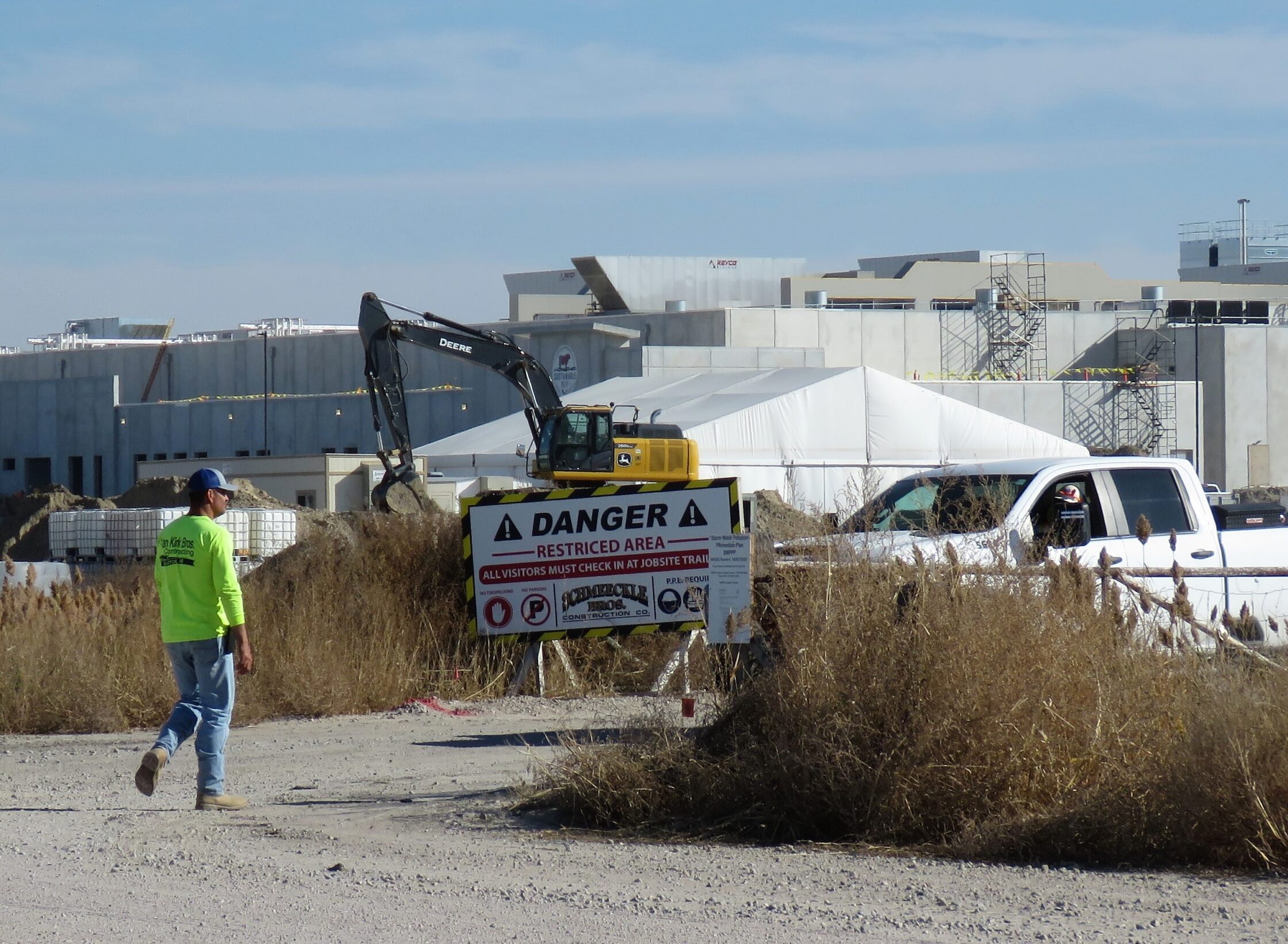


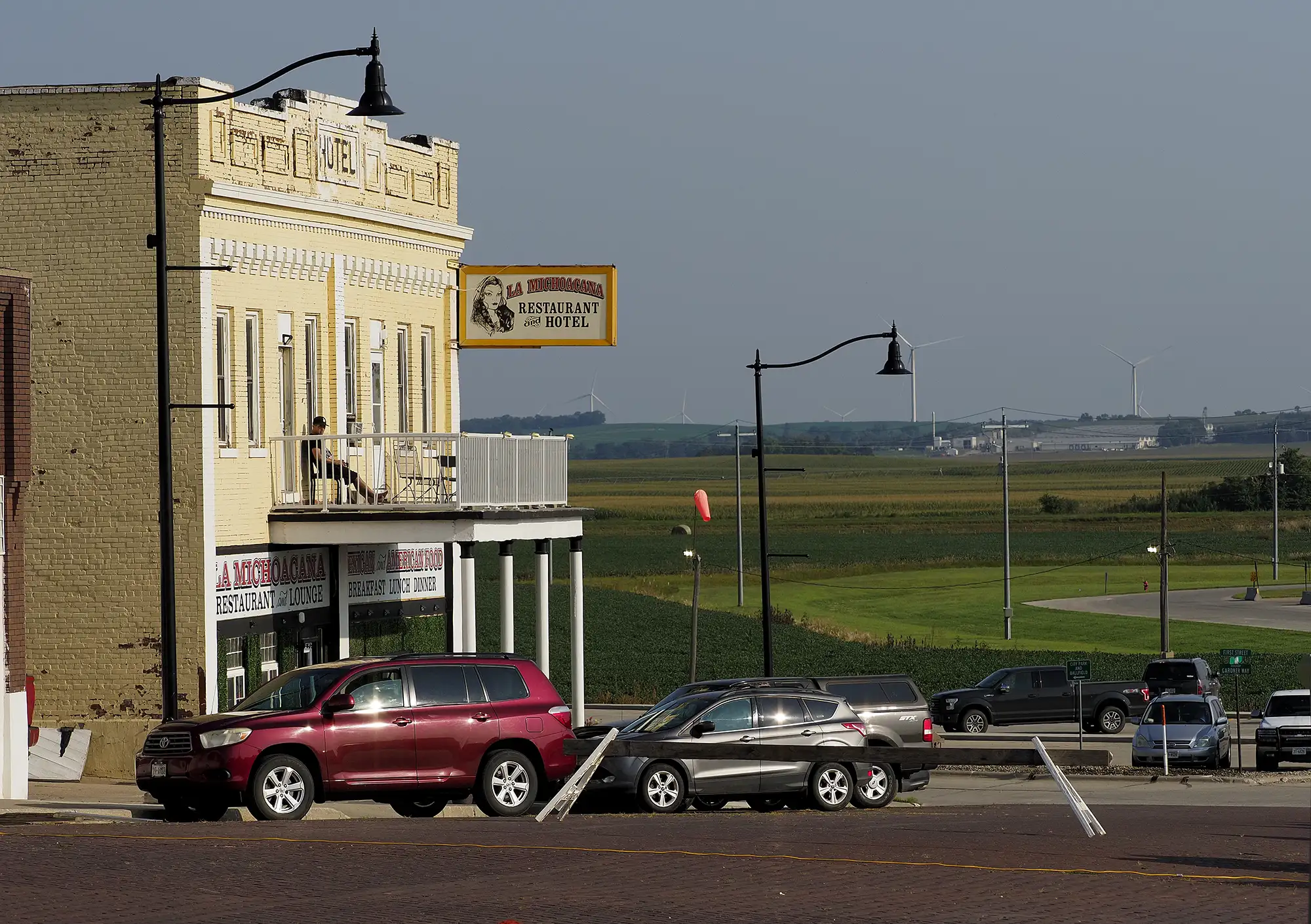

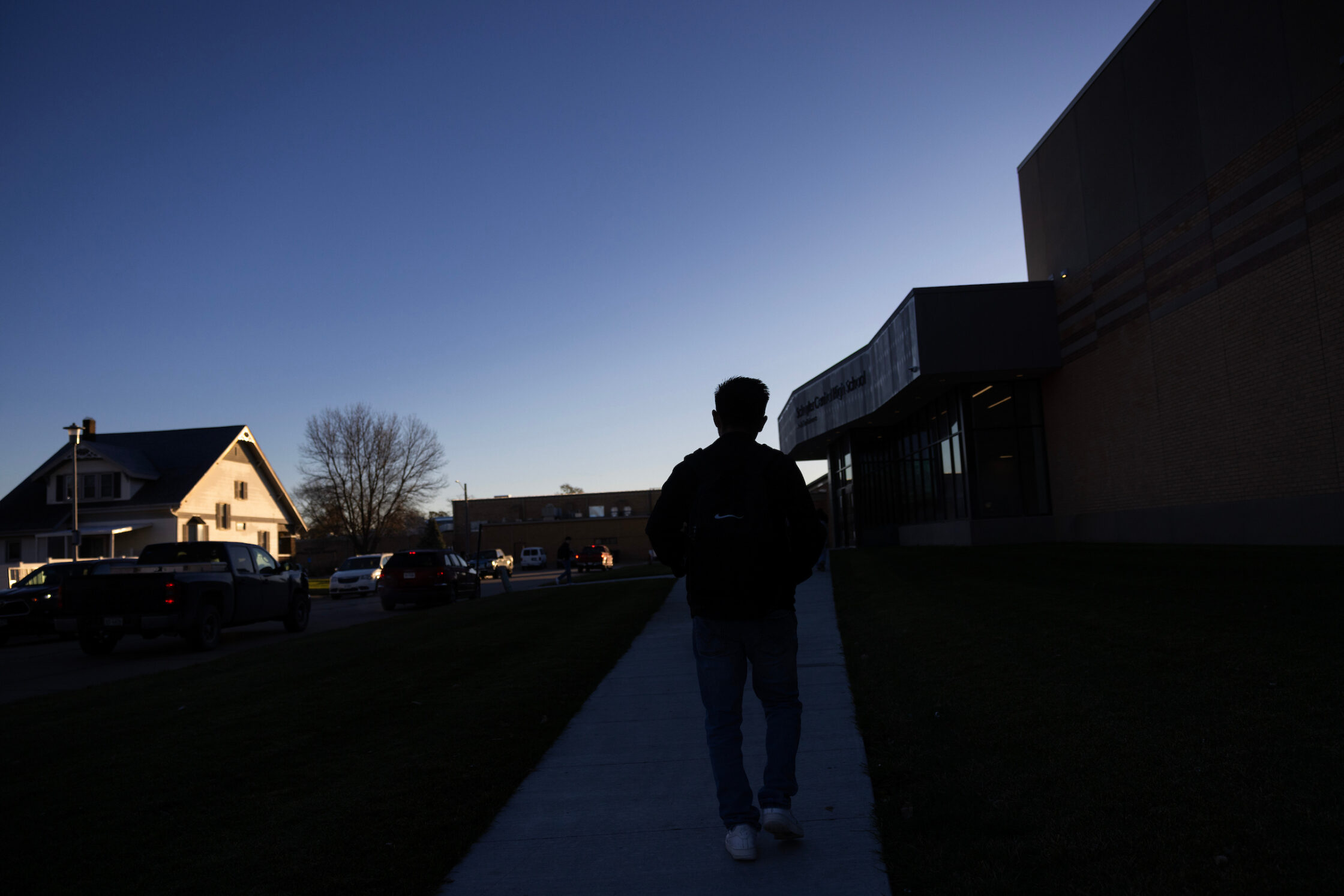


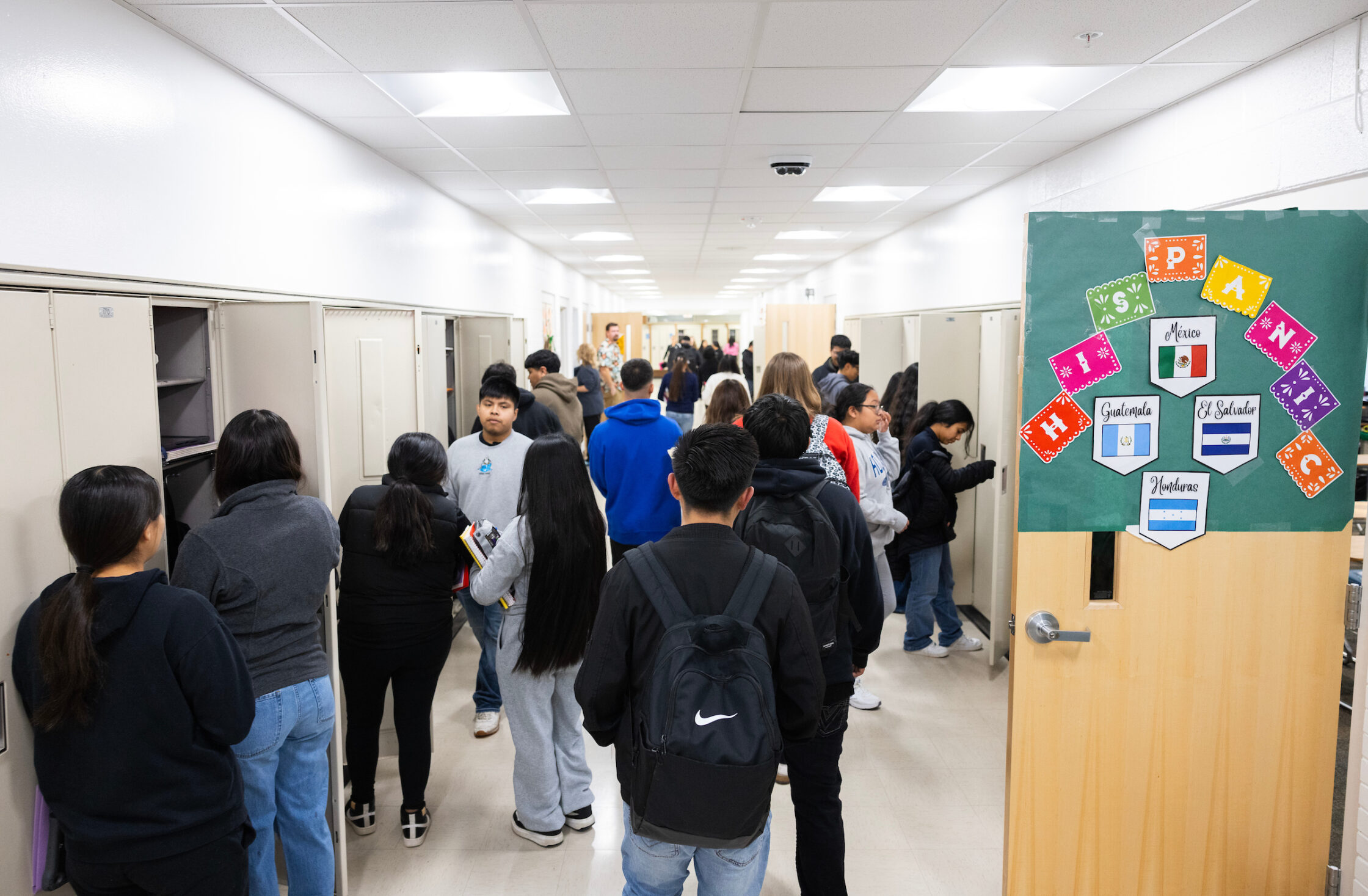
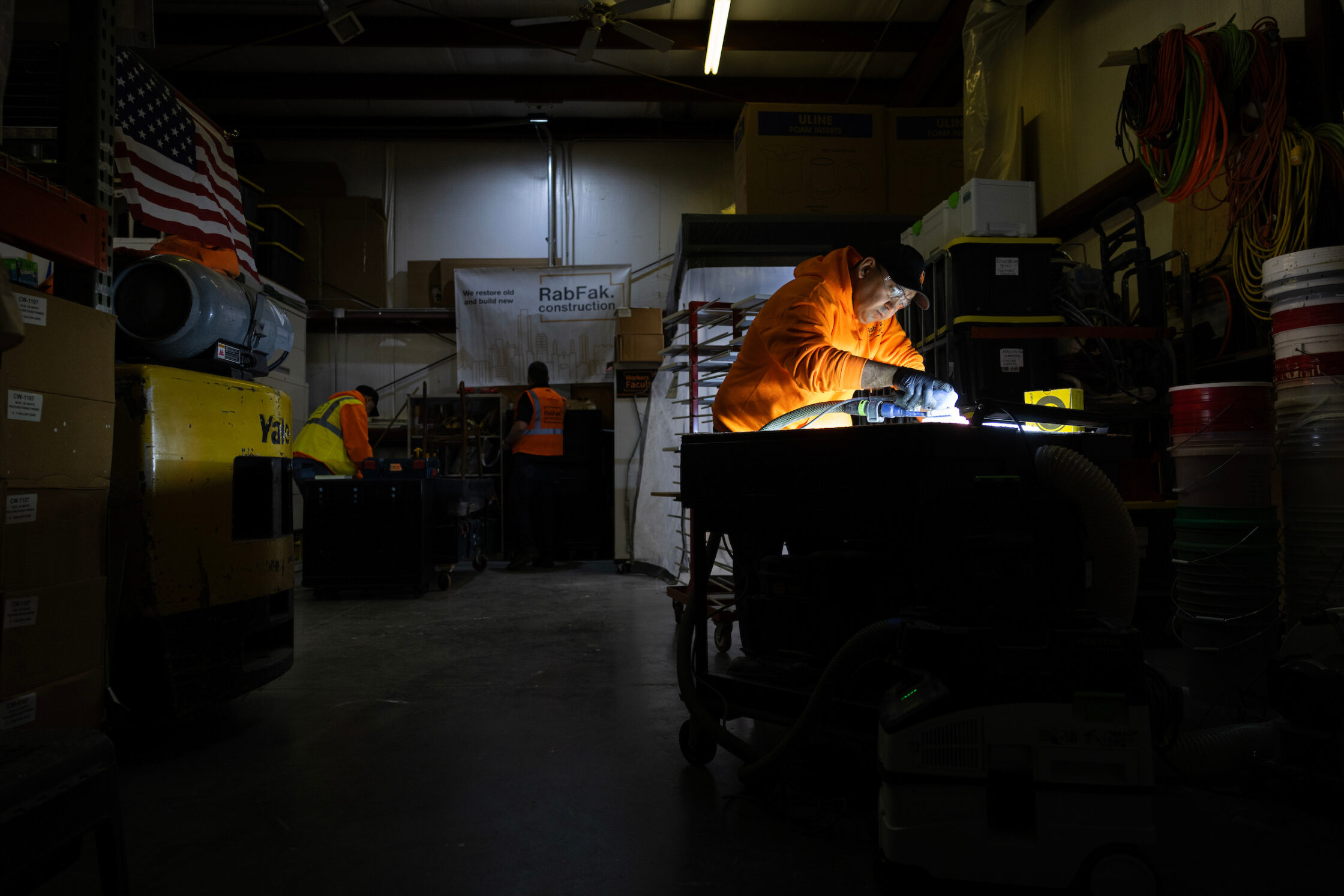


8 Comments
Excellent article! I’m glad citizens’ concerns were taken seriously and answered with thoughtful and helpful information (instead of dismissed a mere racism). I’m also glad the city seems to be working with and learning from Lexington. I remember Lex going through some rather painful cultural growth spurts when I was younger. I hope North Platte’s growth will be less rocky for all peoples! I’m also excited to think of any future food carts/restaurants that might pop up with Cuban, Mexican or South American food!
Great, well written and well balanced story.
“Crime is also on some North Platte residents’ minds. People point to meatpacking communities like Grand Island and Lexington as examples of what they fear.
But that fear obscures the fact that, today, North Platte’s crime rate is higher than Lexington’s. North Platte crime is in fact higher than every other similar sized city with a meatpacking plant in Nebraska, former police chief Dan Hudson told the North Platte Telegraph.”
They have met the enemy. And it is them.
That’s what decades of right wing media being the soundtrack of your life will do to ya’.
I guess the only recourse the residents have is to take these jobs. It appears as if Sustainable Beef is trying to change the mold for packinghouse workers. Sounds like it would be a good job, with decent hours and pay.
Except for one thing, a lot of ‘Muricans are scared of work. And that’s is why immigrants come. No one to blame but ourselves.
Yeah. I was confused with the these jobs aren’t for us comments, lol. I was wondering why not? Why aren’t they for existing residents?
77% of the county are so unconcerned about personal character and behavior that they voted for felon Donald Trump, who among other crimes has been found liable for sexual abuse, and who is currently busy nominating to high office people accused of predatory sexual behavior (Matt Gaetz and Pete Hegseth) expect us to take them seriously when they say they are concerned about criminal behavior’s impact on a community?
What’s the matter with Lexington? I’m confused about all the worry about North Platte “turning” into Lexington when Lexington has a lower crime rate and seems to be doing just fine.
Also, when did immigrants (both legal and illegal) become synonymous with crime? By all accounts immigrants (both legal and illegal) rarely commit crimes; for the latter their men crime is coming here illegally but they aren’t out committing other crimes – by and large they stay under the radar precisely because of their status.
Great piece! Keep up the good work!